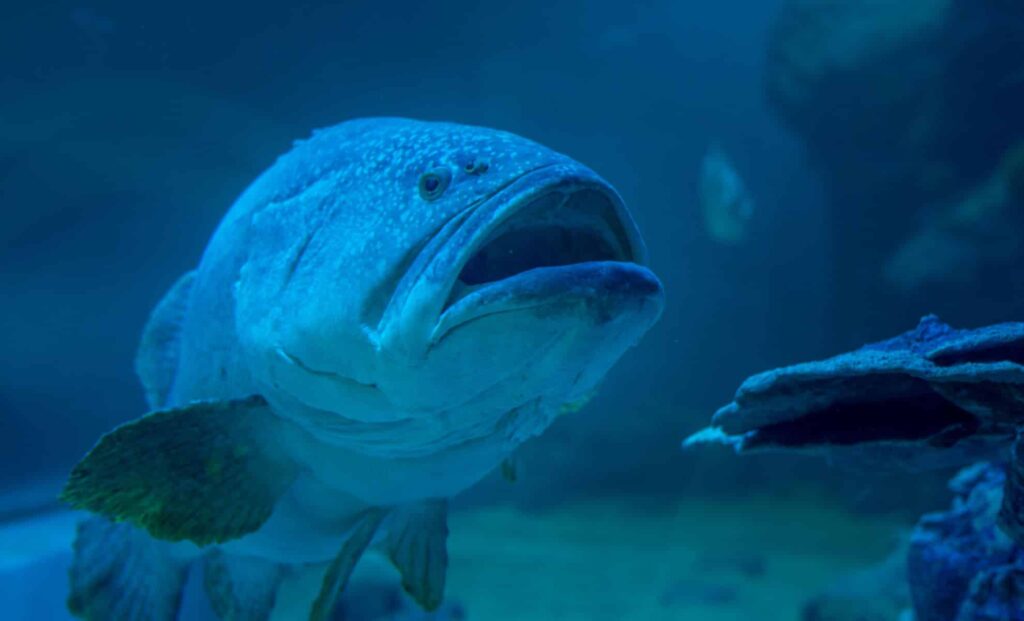
Oldest Living Fish Discovered In Pacific Ocean Depths – The Daily Galaxy
2025-04-19T10:30:00Z
Scientists exploring the Pacific depths have uncovered a marine mystery that defies belief. Could this ancient creature be the longest-living fish ever recorded?
In a recent deep-sea research expedition reported by Animals Around The Globe, scientists have identified what may be the oldest living fish ever recorded in the Pacific Ocean.
The discovery, centered around a species of rockfish, could rewrite the timelines of marine longevity and open new avenues in the science of aging and ecological conservation.
The Unexpected Discovery in the Abyss
During a deep-sea survey in the Pacific Ocean, marine biologists encountered an individual from a long-lived species, later identified through morphological and genetic analysis as belonging to the Sebastes genus, commonly referred to as rockfish. These species are already known for their extreme lifespans, but this particular specimen appears to be unprecedented.
Using radiocarbon dating on the fish’s tissue samples—a method commonly applied to verify historical timelines in both archaeology and paleontology—researchers estimated the fish’s age at potentially over two centuries.
Rougheye Rockfish. Credit: Unsplash
A Look at the Rougheye Rockfish
The rougheye rockfish (Sebastes aleutianus) is a prominent candidate for this record. This species, found in cold, deep waters from Japan to California, is already documented to live past 205 years. What makes the recent finding even more compelling is the remote and extreme nature of the environment it was discovered in.
These fish are easily recognized by their spiny dorsal fins and the roughly textured area beneath their eyes. More than a biological curiosity, they represent an extraordinary example of evolutionary resilience in one of Earth’s most hostile ecosystems.
Why Deep-sea Species Live So Long
Long life in the ocean is often linked to a few recurring biological traits: slow growth, low metabolic rates, and stable environmental conditions. The newly discovered rockfish exhibits all of these.
Due to the cold temperatures and low oxygen levels of deep-sea habitats, energy demands are minimized. Predation is less common at these depths, and competition for food is moderate, creating an ecological niche where longevity is a viable survival strategy.
These traits not only extend lifespan but also make the organism particularly valuable for studies on cellular aging, oxidative stress, and genetic stability.
Hidden Roles In Marine Ecosystems
Beyond their age, rockfish play an important role in their ecosystem. As mid-level predators, they help regulate populations of smaller fish and invertebrates, maintaining a balance in the deep-sea food chain.
Their presence also supports larger marine predators, creating a chain of dependency that links many layers of the ecosystem. Studying ancient individuals like this one offers insight into population dynamics, reproductive cycles, and how species adapt to slow ecological changes over centuries.
Human Impact and the Urgency of Protection
Despite their resilience, rockfish populations are not immune to human threats. The two biggest are overfishing and deep-sea trawling, both of which destroy habitats that take centuries to recover.
Fishing regulations across the Pacific, particularly in the US and Canada, have already started including species-specific quotas and depth restrictions, but enforcement varies. Without stronger international collaboration, such long-living species could vanish before they’re fully understood.
Climate change adds further complications. Rising ocean temperatures, acidification, and decreasing oxygen levels could reduce the habitable zones for these cold-water species, threatening not just individuals but entire age-structured populations.
Marine Reserves as Time Capsules
One of the most promising solutions lies in the expansion of marine protected areas (MPAs). These reserves act as ecological time capsules, where marine life can evolve and thrive undisturbed.
Research shows that MPAs not only support greater species diversity, but also increase average fish age and size, allowing for multi-generational data on species like Sebastes.
In areas where MPAs overlap with deep-sea habitats, long-lived species are more likely to survive and recover.
Auto-posted from news source






